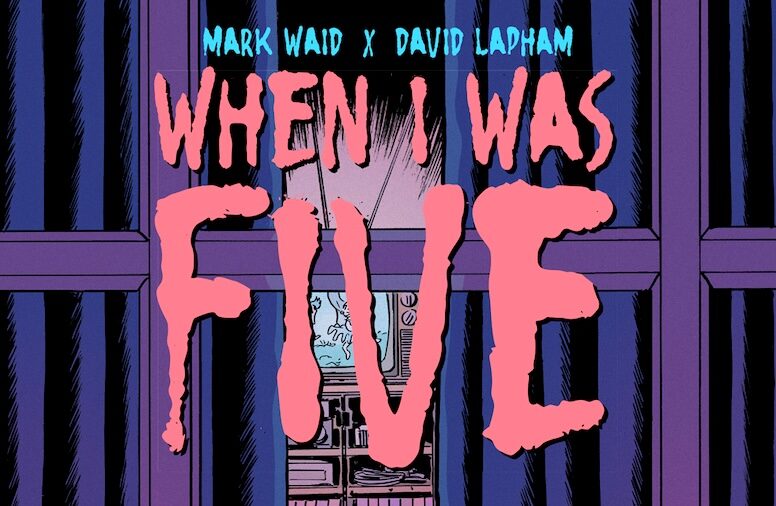
Brazil is a country with some of the most intoxicatingly lush topography, which relentlessly lures tourism, endless natural resources, some of the warmest (and most beautiful) people in the world and a birthplace for talent and creativity. One of those talented people is director/producer/writer Maria Augusta Ramos, who has built quite a name for herself as a documentary filmmaker.
The Brazilian born director recently celebrated the world premiere of her latest documentary, O Processo (The Trial), which witnesses the intense, behind the scenes trial and impeachment process of Brazil’s first female president, Dilma Rousseff. LRM had the pleasure of sitting down with Ramos recently in Berlin, to talk about the nerve-racking impeachment, the country’s current state, her take on the evocative process and her hopes for Brazil. See what the filmmaker had to say about O Processo.
LRM: You’ve made some very powerful, award winning documentaries, Maria. Why was it so important for you to make this film and tell this story?
Maria Augusta Ramos: Well, I think it’s very important because it reflects on a very, very fundamental moment in our history. And I don’t normally think of, when you’re talking about Brazil, Brazilian history, but Latin American history because of what’s happening in Latin America now, in different countries. So I think this is very, very important to document that and document that in a way that we could have access to different narratives, not only the same narrative that was in favor of the impeachment that was published by most of the media. So I think it was important to do that and to allow for all these other narratives and the other arguments to come up. And also, look at the discourse and look what’s happening. Not only in terms of facts, but also in terms of discourse, in terms of interactions, and how people were interacting, and how they were communicating or not communicating, throughout the whole process.
LRM: And was it a challenge to get inside to have access to the politicians while witnessing and filming all this?
MAR: Yeah. It was a bit of a challenge. Yeah. For the first days, which you see in the film only in the prologue, we didn’t have authorization to film at the House of Representatives. At the time, the house speaker didn’t allow us to film, but I filmed outside. But in the Senate, fortunately, we did get authorization to film the whole impeachment process, the committees and the plenary, the judgment, and I had access to the president’s defense lawyer and his team and also the senators that were defending her against impeachment. And that was important to get, to have that transparency. Somebody asked me, “Why didn’t you do that with the rival?” Well, I did try to get close to the other arguments, but I didn’t have as much access as I had to the left. But nonetheless, I thought it was important to present their arguments in the film, the arguments of the prosecuting attorney, Janaina Paschoal, and the senators, and to present the arguments for the impeachment. And I tried to do that.
LRM: And where do you stand? Were you a neutral party in telling this story?
MAR: I’m not neutral at all, not as a political being, neither as a filmmaker. I mean, my film is not neutral, is not impartial. There are no impartial films. But my vision is 139 minutes of what happens. It doesn’t matter if I’m pro or if I’m against or if I think it was a fool. I mean, the film should speak for itself. The film should be a cinematographic experience of that moment. I think it should work in the sense that people should be able to see themselves, to see the mirror, and to see what they’ve gone through. So that’s the power of the film. So for me, it’s not just a question of making a film to defend a thesis in favor or against it.
LRM: For you, it was about telling the truth.
MAR: Certainly, I have a commitment to the truth. But certainly, to me, it was about coming to the essence of what’s happening, to what was behind all that, and to how it did happen, how we got that far. If you ask me, personally, I am of course, against the impeachment. I think it’s a parliamentary coup.
LRM: So, what was the real reason of her impeachment?
MAR: The charges were on technicalities, basically on fiscal technicalities. No money disappeared. There was, in my view, no crime of responsibility. It was in relation to the farmers, which was a delayed payment of the subsidies. The government delayed payments, okay? She didn’t even act. There was not her signature. It was a process that went through the Ministry of Finance. But anyway, it was about budget technicalities, budget fiscal decisions, that had been practices used by previous governments, okay, and had been accepted until then by the Court of Auditors. And once they decided, they said, “Well, no, you shouldn’t be doing that,” they changed. When they complained, the president, the government, then paid all the delayed payments that were due. It was all paid. So, in fact, it’s not so much that she was just paying for other people’s crimes. There was no crime.
LRM: Do you think she was set up?
MAR: Yeah. Well, what you have to understand is that there was an investigation going on, yes, into a corruption, and that was something else. A corruption with Petrobras, the oil company Petrobras. That was huge, and it is still an ongoing investigation. And that affected her, yeah, of course. You see that in the film as well, how much the people, the politicians that were involved in the investigation were trying to shut it up.
LRM: Why was Janaína Paschoal so emotional about the whole thing?
MAR: She is very emotional. I think she has her arguments. I don’t share them, but it’s important to listen to them. It’s important to know that they exist. It’s important to listen to her, and it what’s the film tries to do as well because she was a very important person in the whole impeachment process. What she has against Dilma Rousseff, I don’t know. I don’t know if it’s something against Dilma Rousseff or against the left-wing policies.
LRM: The media circus and fake news had a big impact on the US elections. Do you think this was the case in Rousseff’s impeachment?
MAR: Absolutely. Absolutely. I mean, that’s why I think the films are so necessary, to counter this, to build a counter-narrative, to show that there are other narratives possible. A lot of fake news. A lot of fake news. A lot of distortion of the truth. A lot of cloudy explanation about the charges, for example, making people very– it was a very Kafka-esque process. At some point, nobody knew what was going to happen. Nobody knew why she was being impeached.
LRM: It looked chaotic in the House of Representatives.
MAR: I mean certainly that happened in the House of Representatives. It wasn’t so in the Senate as you saw in the film. It wasn’t that the whole process was like that at all. I mean, the Senate, they really had a trial and did two short political trials. People gave testimony. They presented arguments, so once in awhile they clashed, but in fact it was far more civilized. Yeah, the arguments were disputed in terms of rhetoric and discourse, and so the film is about looking at those discourses to see what they mean in terms of what they thought within the context.
LRM: Do you think that your presence and the filming made a difference in some of their responses or outcome?
MAR: They always ask me about that because of my previous films because of the fact that I don’t use interviews. It is always very much based on observation. In this case, not at all. I mean, they were so much more interested in everything else that was happening. There was a lot of tension. In those committees they have the Senate TV that they film everything– they already film everything. So once they allowed us in, in terms of behind the scenes, the closed door meetings, they just trusted me completely and they had to. They had other things to be concerned about.
LRM: What do you think needs to happen in Brazil to bring positive change and restore the country again.
MAR: In one word, I think what we need is democracy. It’s really full-blown elections with bold candidates. We need to go back to full-blown democracy and we have elections [in October] so we can finally get moving from the divisions that are just destroying this country and go back to voting again instead of destroying everything that we had succeeded in creating in the last 11 years and being dismantled. I think it’s a big, big pity. For every Brazilian, no matter the politics, it’s very concerning. It’s very sad. We have to find a way out of this. Absolutely.
LRM: What is your process as a filmmaker?
MAR: Usually I make films about specific situation, or a character, or a process, or a moment in time that I’m interested. And then I go find characters to guide me through that situation that, time, that city, and it’s so much based on their everyday life. So through the characters and through their lives I portray and I reflect on that reality. And usually I write a script. I go get financed. The film gets approved. It’s usually the whole production with the Dutch because I’m half Dutch. But in this case, nothing like that happened. I decided to film and the next day I was in a plane, going to Brazil. There was a lot of urgency.
LRM: Are you going to film the election? What’s next for you?
MAR: No. What’s next is distributing this film. And holiday.
 FOR FANBOYS, BY FANBOYS
Have you checked out LRM Online’s official podcasts and videos on The Genreverse Podcast Network? Available on YouTube and all your favorite podcast apps, This multimedia empire includes The Daily CoG, Breaking Geek Radio: The Podcast, GeekScholars Movie News, Anime-Versal Review Podcast, and our Star Wars dedicated podcast The Cantina. Check it out by listening on all your favorite podcast apps, or watching on YouTube!
Subscribe on: Apple Podcasts | Spotify | SoundCloud | Stitcher | Google Play
FOR FANBOYS, BY FANBOYS
Have you checked out LRM Online’s official podcasts and videos on The Genreverse Podcast Network? Available on YouTube and all your favorite podcast apps, This multimedia empire includes The Daily CoG, Breaking Geek Radio: The Podcast, GeekScholars Movie News, Anime-Versal Review Podcast, and our Star Wars dedicated podcast The Cantina. Check it out by listening on all your favorite podcast apps, or watching on YouTube!
Subscribe on: Apple Podcasts | Spotify | SoundCloud | Stitcher | Google Play



